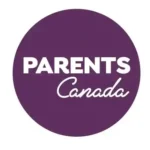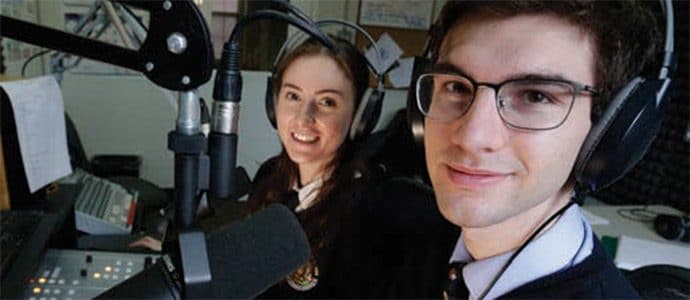Private School
6 min Read
What I liked about private school

January 31, 2018
Private School
6 min Read

January 31, 2018

Six alumni share the things they remember fondly from their independent school years.
Lisa Bitton, graduated from Vista Academy in Toronto, Ont.
• In grade nine, I went to a public high school. I was an underachiever. I was really bright, and just not being challenged enough where I was. So my parents did some research, and they found a small prep school in our area.
• It was really small; there were about a hundred kids. It doesn’t exist any longer. I went there from grade ten to twelve. For me, private school, I just fit. I excelled at the school. It was a good program, and it was individualized because it was small. I went back to public school to complete my last year. (Ontario once had a fifth year of high school.)
Amanda Anthony, graduated from Masters Academy and College, Calgary, Alta.
• The main thing that I liked about the school was the opportunity. And the support, I would say. It didn’t matter what kind of support you needed, whether it was emotional, school support.
• There was a lot of support in terms of schoolwork and lots of opportunity. My music teacher taught (country recording artist) Paul Brandt and got him started. We had a recording studio in the school. We did musicals.
• Just the access to different people and opportunities – mission trips to places like Thailand, Belize.
• All the teachers were your teachers throughout. It was a small community, which I liked. I like smaller, I always have. I took a psychology class on my own through distance learning, which they let me do, and helped me through that.
Joe Kirk, graduated in 1990 from Appleby College in Oakville, Ont.
• There were superior extracurricular activities, and I was heavily involved in a lot of sports. I was serious about hockey and soccer, and I played rugby. It kind of facilitated my after-hours curriculum.
• It was a pretty close-knit bunch. The teachers did take an active interest in you. There was a connection with every one of my teachers. They weren’t really favouring the top-end students, they really spread their time evenly. A lot of my teachers were coaches, so you get a little more face time.
• One thing I took away from the school was discipline. You were regimented, and you had to follow the rules. You could not skip out on extracurricular stuff. And if you didn’t want to play in a competitive environment, there was a recreational group. There’s a degree of teaching the competitive spirit. And it keeps you out of trouble, right?
Jack Mckenzie, graduated in 2015 from Rothesay Netherwood School in Rothesay, N.B.
• Well, for IB (the International Baccalaureate program), you need 50 hours of creative activity or creative service, volunteer service. It could be learning an instrument and playing it at a hospital for people. Stuff like that. In grade twelve, you kind of take over aspects of the school that you’d like to improve. And I was the environment prefect, so I ran a club called the Enviroclub. We met every Saturday.
• I did a lot of things. For athletics, I did running club. They don’t cut people, so there’s no worry about competing for a team or feeling pressure to be the best. I would’ve probably never done a sport except for RNS.
Brian Matthews, graduated in 1993 from Crescent School in Toronto, Ont.
• My overall experience was resoundingly positive. Every opportunity was there to take advantage of. I was not the most athletic guy, I was not the best drama guy, but I was a little bit of everything, and I enjoyed doing everything. The facilities and programs, and the way they scheduled them out, it really allowed me to be in the jazz band on Tuesday night, and I could have basketball practice Thursday morning or Friday after school. Everything was at my fingertips.
• I was into music. We did a couple of trips, competitions and things, where we put a band together and went down and played in New Orleans or Washington. Unbelievable.
• It’s funny, skipping class didn’t even seem like an option. Every class they were taking attendance. They’re a lot more tuned in to how you’re doing. My parents would get a phone call if I didn’t show up.
• When you’re talking about labour problems and all that stuff, private schools are completely immune to all of that.
• It was through a Crescent connection that I got into the entertainment field. That’s another benefit. You’re going to meet certain people you wouldn’t have met, maybe? There seems to be a network.
Marisa Rienzo, graduated in 2000 from grade eight at Mentor College in Mississauga, Ont.; went on to a public arts high school
• All the values, work ethic and homework signing; all of those things prepared you well for the public school system, because you weren’t really watched as diligently in public school. Like, you do your homework. You know? It was just like those values were really instilled at such a young age.
• We also had exams in grade four. I remember it was a lot at first for a nine-yearold, but it did prepare me to understand what an exam is, how to study well, and what it means to move forward and get good grades and stuff. I think that the work ethic that is instilled in us was pretty great. In university, it was really on me to figure things out and I think I had a good backbone, having learned so much in my elementary years. I think that really set a precedent for moving forward in my later education years. Just the importance of it and then, knowing what my parents had invested.